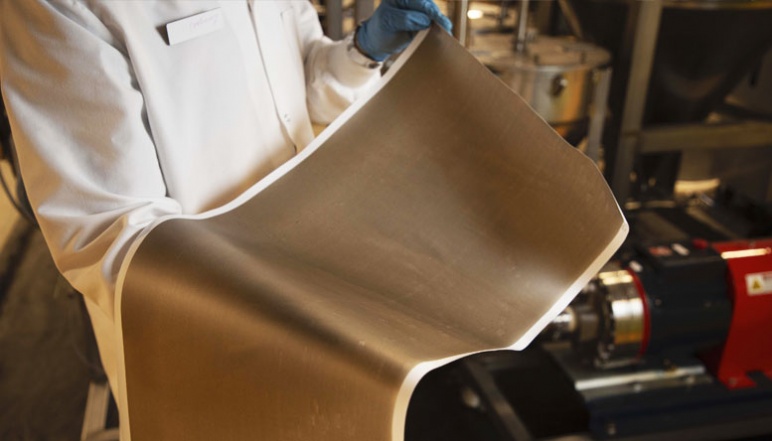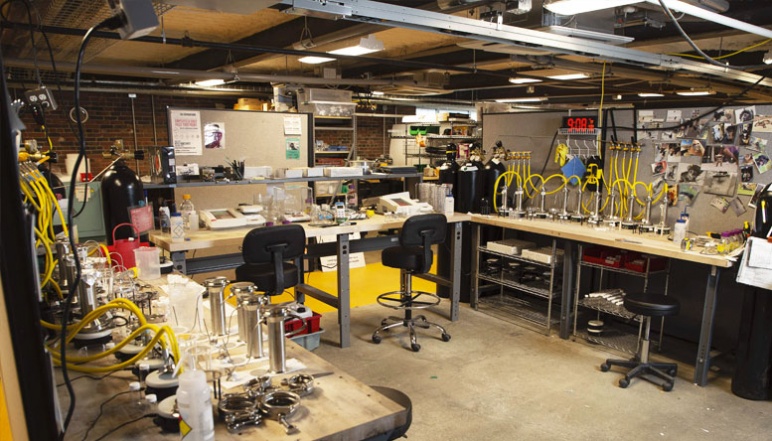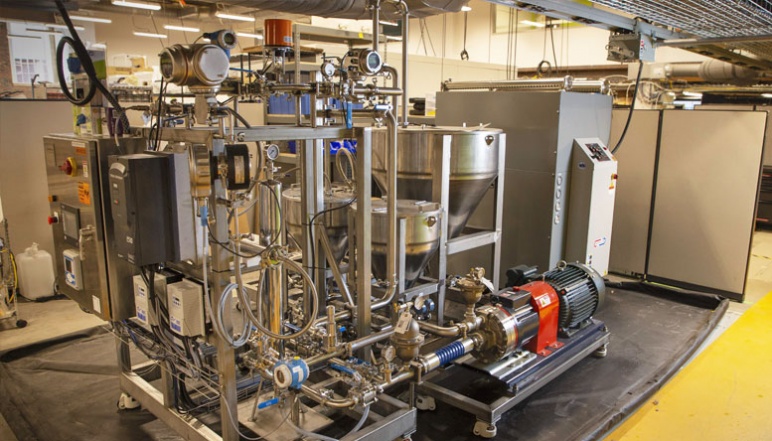Shreya Dave: MIT Alumni Tackling Food and Water Challenges After Graduation
PhD ’16 | Chief Executive Officer of Via Separations

Chemical separations are highly energy intensive techniques used in a wide range of water desalination and industrial manufacturing processes when there is a need to separate two components of a solution. Credit: Shreya Dave

Shreya realized that the membrane that she had helped to develop could significantly reduce energy consumption for manufacturers making paper products, pharmaceuticals, chemicals, oil, gas, and more. Credit: Shreya Dave

Through this research and the connections she made through J-WAFS with other water-focused MIT researchers, Shreya came to see that “food and water are equally critical” to the energy solutions we need for a sustainable future. Credit: Shreya Dave
Shreya Dave graduated from MIT in 2016 with her PhD in Mechanical Engineering, where her research focused on separations membranes using the new material graphene oxide to develop reverse osmosis membrane technologies. This work was led by Professor Jeffrey Grossman in the Department of Materials Science and Engineering and supported by the J-WAFS Solutions program.
Chemical separations are highly energy intensive techniques used in a wide range of water desalination and industrial manufacturing processes when there is a need to separate two components of a solution. One of the most well-known separation technologies used for desalination is reverse osmosis (RO)–a process where saltwater is forced through a membrane that essentially filters out sodium ions. Separation membrane technologies can be highly specific and are designed to isolate particles based on size, shape, density, chemical properties, and/or electrical charge.
For her doctoral research, Shreya worked on a team that was developing novel graphene-oxide membranes which are cheaper and less prone to degrading than the polymers and ceramic membranes commonly used in separations today. Her team designed the new technology with the intentions of improving energy efficiency in water desalination. Unfortunately, the membrane they developed was too expensive to be economically impactful in the water industry, according to Shreya, leaving her and her team with the notion that their invention had no practical applications.
However, what she came to learn though further research was that there are actually hundreds of manufacturing industries using separations processes beyond water desalination. Currently, the energy required for these processes’ accounts for 12% of all US energy consumption. Shreya realized that the membrane that she had helped to develop could significantly reduce energy consumption for manufacturers making paper products, pharmaceuticals, chemicals, oil, gas, and more. “Name your manufacturing industry, I'll tell you my favorite separation.” Shreya mused.
Shreya hadn’t always been so vested in the applications of membrane technology. “I like to joke when we're hiring that nobody grew up saying, ‘I want to be a membranes expert,’” she said when asked her why she first became interested in membranes. What she did have was a longstanding interest in and focus on sustainability issues that began long before her time at MIT. It wasn’t until she started her PhD program, however, that she discovered an application for her passion for sustainability in food and water issues.
“[Coming in], I was looking for a research lab where I not only enjoyed the research, but also the people who I was working with,” Shreya said. J-WAFS PI Jeffrey Grossman, a professor in the Department of Materials Science and Engineering, was just the person Shreya had been looking for. She brought a paper to him that she had read focused on a theoretical computational model for a new type of membrane for water desalination. For her it was the perfect combination—a sustainable solution that required hands-on research and that could ultimately be scaled up. “I can't say that I had previously learned a lot about food or water issues in the way of sustainability,” Shreya said, but through this research and the connections she made through J-WAFS with other water-focused MIT researchers, she came to see that “food and water are equally critical” to the energy solutions we need for a sustainable future.
J-WAFS support for their work—in the form of a 2015 J-WAFS Solutions grant—came at a critical point. “Our ability to make progress on the technology to the point where we could even conceive of spinning it out was because of the support that we had from our J-WAFS grant.” Upon leaving MIT with her PhD, Shreya along with Professor Grossman and lab mate Brent Keller PhD16, now Via Separations’ CTO, founded their new company. In 2017, they were announced as part of the first cohort of startups to be invested in by MIT’s startup accelerator The Engine, which focuses on companies developing “tough” technologies—transformative ideas that require time and significant investment to commercialize.
Today Shreya is leading a team of twelve at Via Separations where they “operate at the intersection of energy and water.” Their technologies allow for more efficient use and recycling of water within manufacturing plants. Although Via Separation’s technology primarily focuses on energy efficiency, to Shreya “water and energy are inextricably linked.”
Want to find out more about MIT alumni working in food and water? Click here.